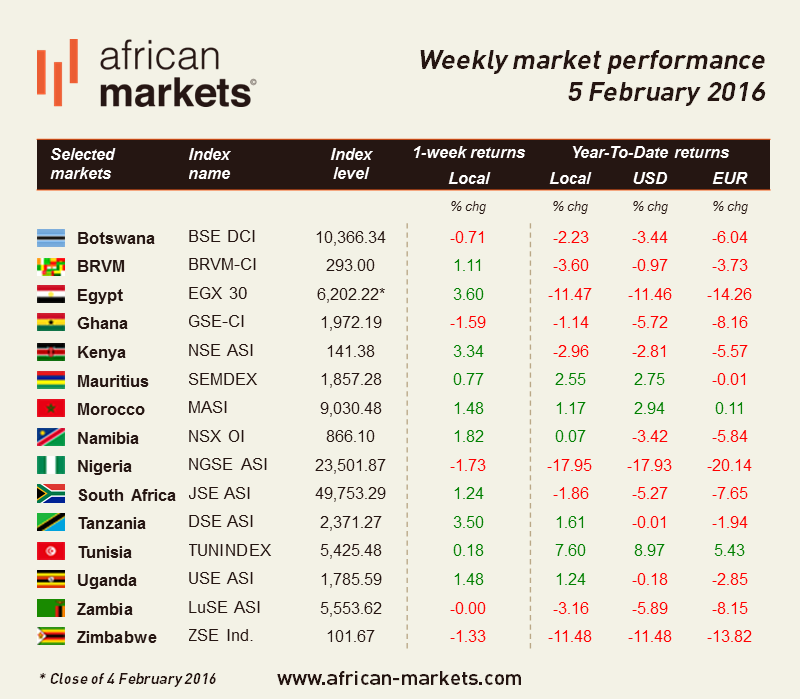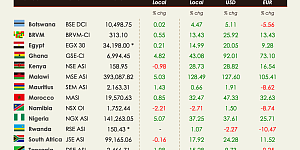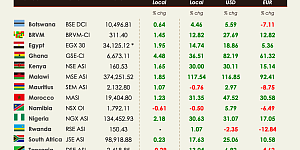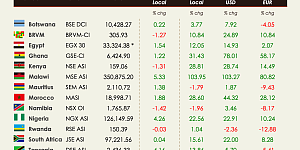African markets ended the first week of February with the majority of indices sitting on the green zone. The week was marked by a mining rally driven by a sliding dollar making commodities attractive alternative investments despite fundamentals basically unchanged and prone to remain that way for some time. Contributing to the new positive sentiment were speculations that the Chinese economy would reenergise as the country set its growth target at 7% for 2016, higher than most consensus expectations.
On top of general global market challenges, African indices faced country-specific challenges. EGX 30 rose by 3.60% this week to close at 6,202.22 points, up from 5,986.78 points a week earlier, affirming the index position above the 6,000-mark surpassed on Tuesday. The benchmark is supported by a few stocks especially CIB. On another note, according to Reuters, the Egyptian dairy firm, Domty, announced that it is planning an initial public offering on the EGX in March.
NSE ASI rose by 3.34% despite a tough beginning of the week as the Kenya Revenue Authority (KRA) announced it missed its half -year tax collection targets by a massive Sh47.6 billion, indicating an expansion of the budgetary deficit with potentially negative consequences on the economy. The index was rescued by the solid set of results reported by EABL this week.
JSE ASI increased by 1.24% in spite of the index battering lower in the beginning of the week with banks hit the hardest following Moody’s negative stance towards the sector on rate hike concerns. However, improved global sentiment with a collapsing dollar and firmer commodity basket drove the end of the week performance.
Among the worst performers of the week, one notes NGSE ASI with -1.73% and ZSE Ind. with -1.33%. On top of falling crude oil prices hitting Nigeria, Naira fell to a record low at 311 a dollar in the parallel market widening the gap between official rate and the one of black market. And comments from Fitch Rating Agency stating that Buhari’s economic policy may not generate the stimulus the country needs to sustain growth certainly did not help sentiment. As far as Zimbabwe is concerned, the country is facing the worst drought in almost two decades, which cut agricultural yields and as watering holes and pastures dry up farmers’ livestock are impacted. The drought has also affected South Africa and Zambia, the region’s biggest corn producers respectively.
- Par Muriel Mosango









































